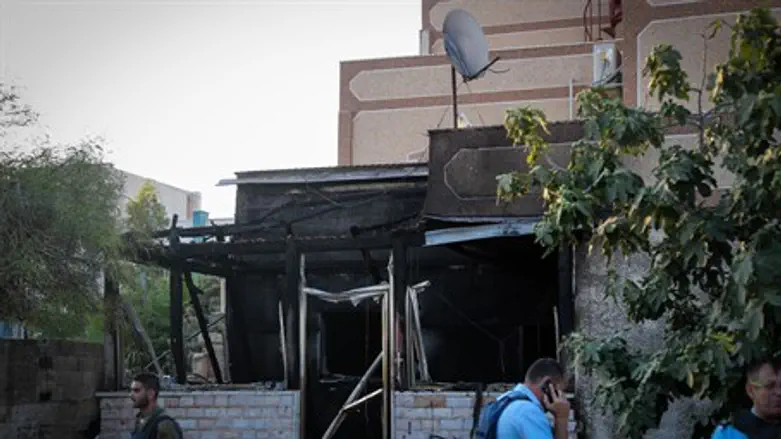
The Israeli Security Agency (ISA) and Judea-Samaria district police spokesperson on Sunday issued a joint statement, according to which the latest arson in the Arab town of Duma doesn't appear to have been committed by Jews.
"Following on the media gag order regarding the investigation of the Duma fire that took place on the night of 3/20/2016, it is cleared for publication that the estimation is strengthening that this was not an action on a nationalist background," read the statement.
"The findings up until now at the site of the incident do not match with the characteristics of intentional arson by Jews. The rest of the details of the investigation remain under a media gag order."
The assessment would seem to strengthen suspicions that a string of three fires targeting one family in the town may be connected to a reported 18-year-old feud within the Arab village, and not "Jewish terror" as has been alleged in the investigation of a lethal arson attack that took place last July.
Earlier on Sunday, Shmuel Meidad, director of the Honenu legal aid organization, said the new arson raises "many question marks," given that it targeted the house of a relative of the Dawabshe family that was killed in the lethal arson attack.
The arson on Saturday night targeted Ibrahim Dawabshe, a witness in the trial of Amiram Ben-Uliel and a 17-year-old alleged accomplice, who are suspected of being behind the arson that killed the Dawabshe couple and their infant son. Controversy has surrounded the case, as the suspects argue the ISA extracted false confessions from them through brutal torture - the ISA has already admitted at least one false confession was made.
Ibrahim Dawabshe is the sole witness who claimed to have actually seen two alleged attackers during the arson. The testimony is at odds with Israeli investigators' version of events, according to which Ben-Uliel acted alone after his sole accomplice failed to turn up at the meeting point.
Aside from Saturday night's arson, just a month after the lethal arson the house of the victim's brother was set on fire but immediately ruled to be an Arab arson and not investigated further.
That second arson further raised suspicions among some that a reported longstanding local feud was responsible for the murder, particularly in light of large question marks in the details of the fatal arson.